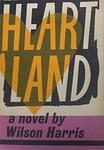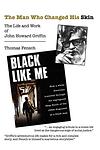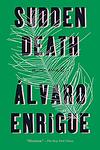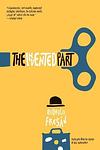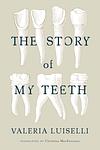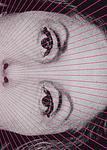The Greatest Latin American "Experimental" Books of All Time
Click to learn how this list is calculated.
Genres
The "Experimental" category of books is characterized by works that challenge traditional literary conventions and push the boundaries of form and content. These books often incorporate unconventional narrative structures, language, and themes, and may experiment with different mediums such as poetry, visual art, or multimedia. The goal of experimental literature is to create new and innovative ways of storytelling that challenge readers' expectations and expand the possibilities of what literature can be.
Date Range
Reading Statistics
Click the button below to see how many of these books you've read!
Download
If you're interested in downloading this list as a CSV file for use in a spreadsheet application, you can easily do so by clicking the button below. Please note that to ensure a manageable file size and faster download, the CSV will include details for only the first 500 books.
Download-
1. The Savage Detectives by Roberto Bolaño
"The Savage Detectives" is a novel that follows the lives of two Latin American poets, Arturo Belano and Ulises Lima, who are founders of a literary movement called "visceral realism." The book is divided into three parts and is narrated by multiple characters, providing different perspectives on the protagonists. The narrative spans over 20 years, following the poets' journey from Mexico City to Europe, Israel, and Africa, as they search for a mysterious poetess and navigate through the world of literature, sex, drugs, and the complexities of life.
-
2. The Hour of the Star by Clarice Lispector
"The Hour of the Star" is a poignant narrative that explores the life of Macabéa, a poor, unattractive, and naive typist living in the slums of Rio de Janeiro. The story is narrated by Rodrigo S.M., a sophisticated writer who struggles with how to accurately portray Macabéa's simple existence and her tragic fate. The novel delves into themes of identity, poverty, and the human condition, presenting a stark contrast between the lives of the rich and the poor, the educated and the ignorant, and the beautiful and the plain.
-
3. Hopscotch by Julio Cortázar
This avant-garde novel invites readers into a non-linear narrative that can be read in two different orders, following the life of Horacio Oliveira, an Argentine intellectual living in Paris with his lover, La Maga. The story explores philosophical and metaphysical themes, delving into the nature of reality and the human condition, while also examining the struggles of intellectual and emotional life. The second part of the novel takes place in Buenos Aires, where Horacio returns after La Maga disappears, and where he grapples with his past, his identity, and his place in the world.
-
4. The Passion According to G.H. by Clarice Lispector
"The Passion According to G.H." is a philosophical novel that delves into the existential crisis of a wealthy Brazilian woman who, after killing a cockroach in her maid's room, experiences a profound metaphysical crisis. The narrative unfolds as a stream of consciousness that explores themes of identity, existence, and the nature of reality. The protagonist's journey forces her to confront her own humanity, the concept of nothingness, and the chaotic, interconnected nature of life. It's a profound and introspective exploration of the human condition and the meaning of existence.
-
5. Explosion In A Cathedral by Alejo Carpentier
The novel is a historical narrative set in the Caribbean during the time of the French Revolution, following the lives of a family caught in the tumult of the era. It explores the impact of European political upheaval on the colonies, as the protagonist becomes involved with historical figures and events, including the revolutionary missions of Victor Hugues. The story delves into themes of power, freedom, and the complex interplay between history and the individuals who live through it, painting a vivid picture of the colonial world and its transformation under the forces of revolution and counterrevolution.
-
6. Trilce by César Vallejo
"Trilce" is a groundbreaking collection of 77 avant-garde poems that explore the complexities of human existence and emotions. The work is known for its innovative use of language and form, challenging traditional poetic norms. It delves into themes of love, death, and existential angst, while also reflecting on the author's personal experiences, including his struggles with poverty and his political beliefs. The poems are characterized by their intense imagery, complex syntax, and a sense of deep melancholy.
-
7. Terra Nostra by Carlos Fuentes
This sprawling, complex novel is a rich tapestry of historical, philosophical, and literary references that explores the identity and culture of Latin America through a fantastical lens. Set primarily in 16th-century Spain during the reign of Philip II, the narrative weaves together the lives of historical figures and fictional characters, blending reality with myth and time travel. The story delves into themes of creation and destruction, the cyclical nature of history, and the quest for a utopian society, all while examining the consequences of colonialism and the search for a Latin American identity that reconciles its indigenous, African, and European heritage. The novel's intricate structure and dense prose challenge the reader to consider the past's impact on the present and future of a region with a tumultuous history.
-
8. Palace of the Peacock by Wilson Harris
The novel follows a crew of men on a dangerous journey up the Amazon River to find a lost tribe. Led by a domineering, half-indigenous foreman, the crew grapples with the harsh realities of the jungle, their own pasts, and the blurred lines between dreams and reality. As they venture deeper into the wilderness, they are forced to confront their own mortality, the violent legacy of colonialism, and the spectral presence of a beautiful, mysterious woman who seems to embody the spirit of the Amazon itself.
-
9. Heartland by Wilson Harris
"Heartland" is a novel that delves into the complexities of human consciousness and the interplay between reality and imagination. Set against a backdrop that blends elements of South American landscapes with mythological dimensions, the narrative follows a protagonist who embarks on a transformative journey. Throughout this journey, the character encounters various figures and experiences that challenge his perceptions of identity, time, and existence. The book is known for its dense, poetic prose and its exploration of themes such as colonialism, cultural heritage, and the nature of artistic creation, all of which contribute to its reputation as a challenging but rewarding read.
-
10. Near To The Wild Heart by Clarice Lispector
The novel delves into the inner life of Joana, a young woman with a complex and introspective nature, as she navigates the vicissitudes of her existence. Through a non-linear narrative and a stream-of-consciousness technique, the reader is immersed in Joana's thoughts and experiences, ranging from her childhood to her adult relationships, including her marriage to Otávio. The protagonist's search for meaning and understanding of her own identity unfolds in poetic and philosophical reflections, revealing the struggles of self-discovery and the desire to transcend the ordinary, bringing her metaphorically 'near to the wild heart' of life itself.
-
11. The Obscene Bird Of Night by José Donoso
This novel is a labyrinthine exploration of identity, madness, and the nature of reality, told through the fragmented narrative of a reclusive man who has lived his life in seclusion on a decrepit estate. As the protagonist delves into his past, he recounts his experiences among the deformed and the destitute, the aristocracy and the servants, while grappling with his own fears and illusions. The narrative weaves a tapestry of grotesque imagery, mythological allusions, and a collapsing social order, challenging the reader to distinguish between truth and fabrication in a world where the boundaries of sanity are blurred.
-
12. Blow Up And Other Stories by Julio Cortázar
This collection of short stories delves into the surreal and the everyday with a blend of the fantastic and the mundane, offering a window into the human condition through a series of innovative narratives. The stories challenge the boundaries of reality, exploring themes of existentialism, the nature of time, and the intricacies of human relationships. The author's unique style weaves together the ordinary with the extraordinary, creating a tapestry of experiences that prompt readers to question their perceptions of the world around them. Each tale invites introspection and analysis, making the collection a staple of magical realism and a profound exploration of the complexities of life.
-
13. A Change Of Skin by Carlos Fuentes
The novel explores the complex and surreal journey of a disillusioned Spanish historian who, along with his estranged wife, her American lover, and a Mexican guide, embarks on a metaphysical road trip across Mexico. As they confront personal and collective histories, the characters grapple with themes of identity, betrayal, and the search for meaning amidst the ruins of the Aztec and Spanish empires. The narrative weaves together reality and fantasy, questioning the nature of truth and the possibility of genuine transformation in a world where past and present are inextricably intertwined.
-
14. Maitreya by Severo Sarduy
"Maitreya" is a novel that delves into the themes of transformation, identity, and transcendence, set against the backdrop of a tumultuous period in Cuba. The narrative follows the journey of a protagonist who is both a revolutionary and a seeker of spiritual enlightenment, intertwining political upheaval with mystical experiences. As the character navigates through a world of chaos and change, the story explores the convergence of Eastern philosophies and Western ideologies, ultimately questioning the nature of reality and the potential for rebirth in the midst of societal collapse. The novel's rich, poetic language and complex symbolism offer a multifaceted examination of the human condition and the search for meaning.
-
15. Cronopios And Famas by Julio Cortázar
"Cronopios and Famas" is a whimsical collection of short stories and vignettes that defy traditional narrative structures, blending elements of surrealism, fantasy, and humor. The book is divided into several sections, each exploring different themes and concepts through the interactions of its titular characters: the Cronopios, idealistic and imaginative beings; the Famas, pragmatic and organized; and the Esperanzas, who are indifferent and conformist. Through these characters, the work delves into the absurdities of daily life, human behavior, and the struggle between chaos and order, presenting a unique and playful exploration of the human condition.
-
16. Sudden Death by Alvaro Enrigue
"Sudden Death" is a historical fiction novel that revolves around a fictional tennis match between the Italian painter, Caravaggio, and the Spanish poet, Francisco de Quevedo. The narrative jumps through time and space, touching on the conquest of the Americas, the political machinations of the Vatican, and the personal lives and rivalries of historical figures. The book uses this surreal and humorous setup to explore themes of art, power, and the chaotic, violent nature of the world.
-
17. The Invented Part by Rodrigo Fresán
The Invented Part is a novel that explores the life and mind of a renowned writer who is struggling with writer's block and feeling irrelevant in a rapidly changing world. As he grapples with his own existence, reality, and the nature of fiction, he embarks on a journey that takes him through his past, the lives of his friends and family, and even through the works of his literary heroes. The novel is a mix of science fiction, pop culture references, and philosophical musings, all woven together by the writer's desire to understand and redefine his place in the world.
-
18. The Story Of My Teeth by Valeria Luiselli
"The Story of My Teeth" is a unique and imaginative novel centered around Gustavo Sánchez Sánchez, also known as Highway, a world-traveling auctioneer with a penchant for storytelling and a set of teeth he claims once belonged to Marilyn Monroe. Set in Mexico City, the narrative unfolds through a series of bizarre and humorous episodes, where Highway auctions off not just objects, but stories about them, enhancing their value through his inventive tales. The novel explores themes of identity, value, and the power of narrative, blending elements of philosophy, dental history, and literary theory, all while questioning the nature of truth and the art of storytelling.
-
19. The Complete Stories by Clarice Lispector
"The Complete Stories" is a collection that brings together the short fiction works of a renowned writer, known for her innovative and introspective style. The stories span through various phases of her career, offering a comprehensive look at the broad spectrum of human emotions and existential themes. Through her distinctive narrative voice, the author explores the inner lives of her characters, often delving into their complex psychological landscapes. The collection showcases her unique ability to blend the mundane with the philosophical, revealing the profound within the subtleties of everyday life.
Reading Statistics
Click the button below to see how many of these books you've read!
Download
If you're interested in downloading this list as a CSV file for use in a spreadsheet application, you can easily do so by clicking the button below. Please note that to ensure a manageable file size and faster download, the CSV will include details for only the first 500 books.
Download







